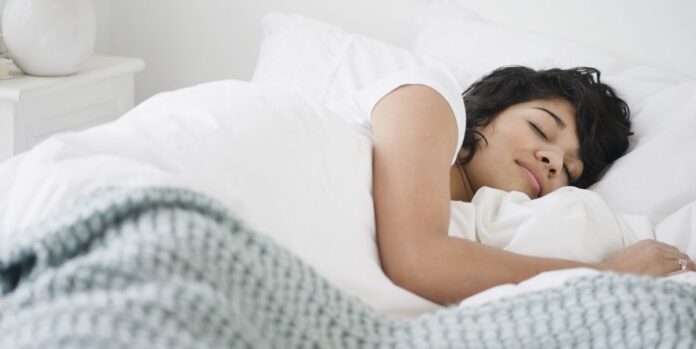It’s not difficult to push back sleep How Much Sleep time and hold back on rest? We’ve all been there: a gorge commendable Netflix discharge, some additional parchment time, or your best bud’s unhitched female. The uplifting news? You can work on 5 hours of rest, yet that ought not to be your standard.
Certain individuals, properly called short sleepers, simply needn’t bother with a great deal of rest. Truth be told, they’re at their maximum with under 6 hours per night. Why? Hereditary qualities.
The awful news is that short sleepers are intriguing. For the vast majority of us, getting just 5 or 6 hours of rest is certainly not a smart thought. Research shows that not getting sufficient rest can influence your capacity to impart, tackle issues, and review data.
So except if you’re a mystical rest freak, you want to get sufficient rest, or your body, wellbeing, and general personal satisfaction might endure.
How much rest do you want?
The particular measure of rest required shifts from one individual to another. Your body might feel completely refreshed following 8 hours, while your accomplice might require a strong 10 hours.
Be that as it may, for grown-ups as a general rule, the National Sleep Foundation suggests getting 7 hours or a greater amount of rest every night to recover from the day’s tricks completely.
Here is a breakdown of the proposals for each age bunch:
grown-ups 65 and up: 7 to 8 hours
grown-ups 26 to 64: 7 to 9 hours
grown-ups 18 to 25: 7 to 9 hours
adolescents: 8 to 10 hours
young kids: 9 to 11 hours
preschoolers: 10 to 13 hours
babies: 11 to 14 hours
babies: 12 to 15 hours
infants: 14 to 17 hours
Precisely how much rest you want relies upon your Zopisign 10 circadian beat — the inside clock that lets you know now is the right time to nod off or awaken. Circadian rhythms rely upon rest synthetics, similar to melatonin, and natural signs, similar to light and haziness. Pills4usa
Signs you’re not getting sufficient rest
Assuming you’re restless, you presumably know it, since, well… *yawn*. As per the American Academy of Sleep Medicine, over-the-top daytime drowsiness or exhaustion is a decent mark of lack of sleep.
It’s one thing to hit your office Keurig for a 3 p.m. liven up to help you through until quittin’ time. Be that as it may, on the off chance that you nod off during gatherings or tests or at the cinema, see yourself as restless.
Different side effects of lack of sleep include:
sluggishness
powerlessness to focus
memory issues
less actual strength
diminished capacity to fend off diseases
fantasies (in outrageous cases)
Assuming that you’re encountering any of these side effects, you ought to call your medical services supplier.
Be your Greatist, consistently
No jade eggs. Simply genuine tips and ways of making wellbeing matter.
Wellbeing gambles from the absence of rest
peevishness
absence of inspiration
uneasiness
despondency
low sex drive
Actual side effects
Not getting sufficient rest can destroy your skin. The Zopisign 7.5 research proposes lack of sleep can make your skin age all the more rapidly and can dial back skin recuperation.
It could adversely affect individuals’ views of you. That facial covering won’t do a lot assuming that you’re sleepless.
Other actual results of lack of sleep include:
puffy eyes
dark circles
almost negligible differences
Mental capability
On the off chance that you think not getting sufficient rest builds your mind flatulates — you know, those “oh no!” minutes you lament — you’re correct!
Absence of rest influences your mental presentation — i.e., how well your cerebrum is working. A 2007 investigation of lack of sleep investigations discovered that an absence of rest can influence navigation, consideration, and long-haul memory.
Mental incidental effects include:
postponed response times
expanded distractibility
diminished energy
anxiety
diminished coordination
unfortunate direction
expanded blunders
absent-mindedness
These could seem like NBD, yet consider what these secondary effects can mean for public wellbeing. While we frequently characteristic occasions like car crashes or train collides with a human blunder, scientists have cautioned that lack of sleep and its secondary effects, like diminished sharpness, merit a more critical look.
While driver’s ed might be so 2000 and late, let us advise you that “sluggish driving” is hella risky. The CDC cautions that in 2013, tired drivers made 72,000 mishaps and drove 44,000 wounds and 800 passings. It’s significant stuff.
Medical problems
Lack of sleep has repercussions for your well-being as well. In a worldwide example of more than 10,000 individuals, that’s what scientists reasoned, as far as mind capability, getting under 4 hours of rest was equivalent to adding 8 years to your age.
Your insusceptible framework fixes itself while you rest, and without enough rest, your body can’t safeguard itself also against sickness.
Some serious medical problems that can go with the absence of rest are:
Hypertension
Your circulatory strain plunges while you’re resting (this is called nighttime plunging), and it’s great for your heart’s wellbeing. Similarly, routinely not resting enough is related to hypertension, particularly among moderately aged people.
Coronary illness
An examination of 15 investigations discovered that the short rest term is connected to a more serious gamble of creating or kicking the bucket from coronary illness or stroke.
Corpulence
A 2011 examination of around 50 investigations tracked down an association between getting under 6 hours of rest an evening and expanded weight risk. This is because the absence of rest builds the body’s yearning chemical, ghrelin.
Expanded cortisol
You’ve most likely known about cortisol, the pressuring chemical. One survey concentrates on lack of sleep and the endocrine framework (which is answerable for directing your chemicals) found that cortisol might be raised when you don’t get sufficient rest.
This could be the aftereffect of stress from not resting or from being extra zonked the following day.
Diabetes
A 2005 investigation of individuals north of 50 found that the people who rested under 6 hours a night were bound to have diabetes than the individuals who dozed 7 to 9 hours, albeit the two gatherings’ active work levels were something very similar.
Gloom
An absence of rest might change how the synapses in your cerebrum work. In a recent report, rodents who were permitted just 4 hours of rest each day (unfortunate rodents!) had changes in synapse action like those found in human sorrow.
What’s more, rodents aren’t the ones in particular who get discouraged: Research shows that clinical occupants who are sleepless likewise have side effects of despondency.
For what reason would we confirm or deny that we are dozing enough?
Assuming you’re carrying on with that zombie life, you’re in good company: The CDC reports that 33% of American grown-ups don’t get sufficient rest consistently. The reasons fluctuate, however, a few normal causes include:
Private matters: We’ve all had some “ish” that kept us up around evening time, similar to relationship stress, really focusing on another child or a wiped out youngster, or cash hardships.
Shift work rest jumble: Yup, it’s a thing. As indicated by the National Sleep Foundation, around 10% of individuals who work night moves or turning shifts are accepted to encounter shift work jumble.
Medical problems: Persistent difficulty nodding off could be a side effect of a continuous rest issue, like rest apnea, or another ailment.
Doctor-prescribed drugs: Some physician-recommended drugs influence rest. Converse with your medical services supplier about the expected symptoms of any drug you’re taking.
Typically prompted ISS (inadequate rest condition): Yes, Netflix gorging has its clinical term. If you’re willfully surrendering rest to complete a time of “GBBO,” you might have typically prompted ISS, which is a type of daytime tiredness.
Medical advantages of getting sufficient rest
Getting sufficient rest has huge advantages for your psychological and actual wellbeing. This is the very thing that you can expect when you begin dozing more:
Better state of mind: Sufficient rest works on your general state of mind (even though you likely knew that as of now).
Worked on coordinated movements: Is klutziness an issue for you? A little 2002 investigation discovered that getting sufficient rest sped up by 20% without a diminishing in exactness.
Better athletic execution: Research recommends that getting sufficient rest and keeping a rest routine can have beneficial outcomes for first-class competitors. Why not you as well?
More energetic-looking skin: Sleep hardship screws with your skin obstruction, otherwise known as the furthest layer of skin.
Rest hacks
Slowing down around sleep time will assist you with nodding off quicker and resting better. These endeavors to further develop your rest routine are here and there called rest cleanliness.
The National Sleep Foundation suggests:
attempting some delicate yoga presents
restricting your openness to blue light from your telephone, tablet, or PC
skipping caffeine and liquor at night
having supper prior at night
attempting a characteristic tranquilizer
utilizing a quieting fragrance, similar to lavender or chamomile medicinal oil, in a diffuser
utilizing a background noise, a fan, quieting music, or earplugs to direct sound
updating your sleeping cushion, bed, cover, or pad
directing your room temperature
embracing the dimness by concealing any lights from gadgets and putting resources into power outage drapes
Primary concern
Rest is significant and influences each part of your wellbeing. Go for the gold 8 hours of rest an evening. You would simply prefer not to make due — you need to flourish!
For the vast majority, getting 5 to 6 hours isn’t sufficient. If you keep awake until late sporadically, you’ll have the option to adapt and work. Simply don’t do it consistently.
If you have any desire to use sound judgment, convey well, and plan like a chief, then you want to go the f**k to rest.



